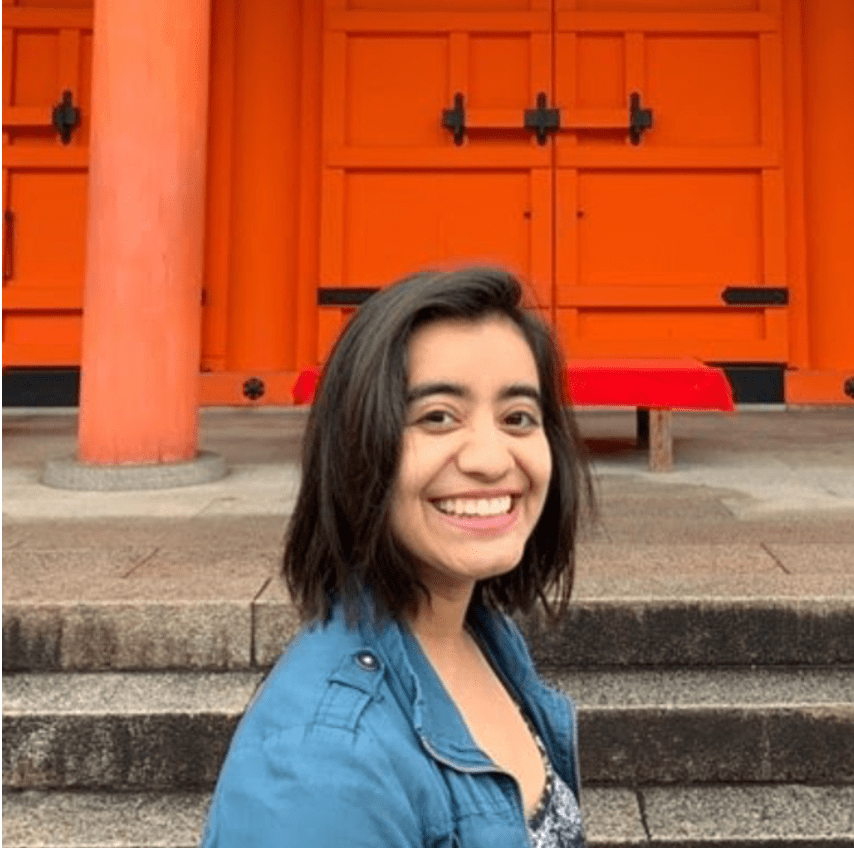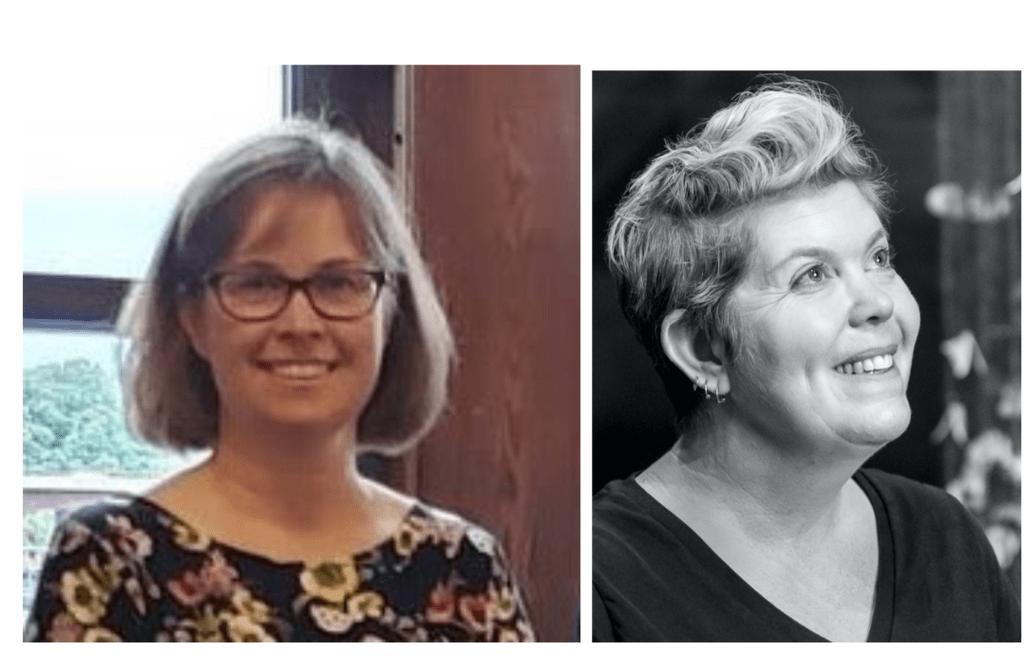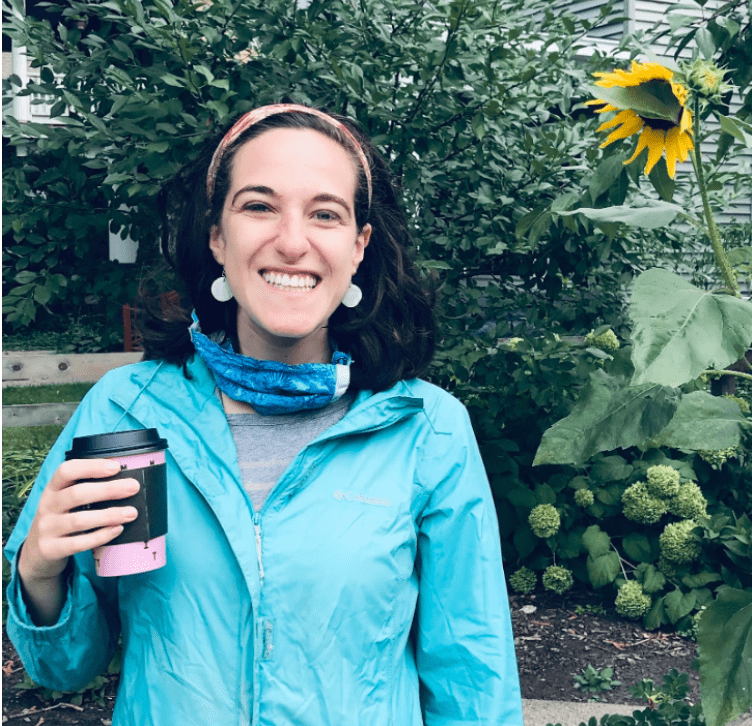Carleton students, faculty and alumni among recipients of the 2021 Campus Compact awards
By Lea Winston ’22
Each year the Iowa & Minnesota Campus Compact awards are given to individuals and organizations who exemplify outstanding civic and community engagement within 27 higher education campuses. This year, Carleton students, alumni, professors, and community partners are among the recipients of these awards.
Eunice Valenzuela ‘21: 2021 Presidents’ Student Leadership Award

Carleton Center for Community and Civic Engagement (CCCE) fellow Eunice Valenzuela ’21 is one of this year’s recipients of the Presidents’ Student Leadership Award for her work developing the website for Carleton’s Participatory and Action Research (PAR) project.
Valenzuela explained that PAR research centers around the belief that “the people who have knowledge are not just academics, but also community members.” As a result, community members should be involved in problem solving and research.
PAR research came to Carleton in October of 2018 when the college received a grant from the Corporation for National and Community service to implement a PAR project in collaboration with community partners in Faribault, MN. Over the past two years, the grant has funded five community research groups that have brought together college faculty and staff alongside Faribault students, parents, teachers and administrators. So far, the groups have collected information about the experiences of Somali and Latinx students and parents in Faribault and developed action plans to enact positive change in the community combating systems of inequality.
Valenzuela first got involved with PAR when she worked for CCCE in the summer of 2020 and has continued her work this year as a CCCE fellow. Her main focus has been compiling important resources about PAR onto the website and translating resources into Spanish.
“Because research and academic work tends to be in English, clear sources about PAR and research and methodologies are hard to find in Spanish,” said Valenzuela. “A lot of PAR projects tend to involve members of minority communities, so to not have resources in their language, even though it is about something they are a part of, is strange.”
Valenzuela was surprised to have received the award but is thankful for the recognition for all her hard work.
“Sometimes it did not feel tangible, but actually getting a reward for it is pretty great,” she said.
After graduating this June, Valenzuela hopes to become a teacher and implement PAR methodologies in her classroom. She explained that students in the classroom are much like community members in that “they know what is a problem and what isn’t and what went well and what didn’t.”
“I think being a teacher and including students in conversations about how to improve their learning experience would be really cool, ” said Valenzuela.
Professor Kelly Connole and Professor Susannah Ottaway:
2021 Presidents’ Civic Engagement Leadership Awards

History professor Susannah Ottaway (left) and art and art history professor Kelly Connole are among this year’s recipients of the 2021 President’s Civic Engagement Leadership awards for their roles as co-directors of Public Works: Arts & Humanities Connecting Communities.
Public Works is a four-year initiative (2017–2021) funded by a Mellon Foundation grant to enhance Carleton’s engagement in public scholarship and civic engagement. Ottaway explains that the goals of the program include providing continued support to ongoing public-facing projects and scholarship while also increasing participation and visibility.
Additionally, through the initiative, the college approved a digital arts and humanities minor. Ottaway said the minor “explicitly connects all the digital humanities work that has been going on on campus into a really clear set of curricular pathways.”
Some examples of the research and scholarship which have emerged from this initiative include Religions MN, co-run by religion professor Michael McNally and research associate Shana Sippy, and The Wandering House, started by cinema and media studies professor Cecilia Cornejo.
COVID-19 restrictions have impacted some of the initiative’s activities and extended the grant through winter of 2022.
“I feel lucky that we already had three years under our belt before the pandemic because it allowed us to build upon those relationships that had already been established,” said Connole. “We are an initiative that is about arts and humanities connecting communities.”
Nevertheless, the pandemic means making new connections has been difficult. Connole explained that due to social distancing it has been a lot more difficult to create connections through casual interactions and small group conversations.
On the flip side, Ottaway explained “the really substantial benefit of the pandemic is that we’ve had to slow down some of our programming.” For example, one of the culmination events of the initiative, the exhibit “Why Treaties Matter,” was supposed to take place in Fall 2020 but has been moved to Fall 2021. As a result, Ottaway said they have had a year of “incredible intentional programming about indigenous history and treaties rights,” including zoom study groups attended by over 160 students, faculty and staff.
“Instead of having that exhibit kick off some intentional conversations about land acknowledgement and history and what this palace means, now the treaties exhibit is going to come on top of all of this programming and increased interest and will be able to take it from there,” said Ottaway. “That is incredibly exciting. It allows us to think of this exhibit not only as a step in the right direction but truly transformational as a whole.”
Both Ottaway and Connole were happy to have received the recognition for the Public Works initiative and are thankful for the support they received along the way. In particular, Public Works administrative assistant Terra Krebsbach, program associate Elizabeth Budd ’19, and the staff in academic technology at the library.
Community Action Center of Northfield:
2021 Presidents’ Community Partner Award
Northfield’s Community Action Center (CAC) received the Campus Compact Presidents’ Community Partner Award. The partnership between Carleton’s Center for Community and Civic Engagement (CCCE) and the CAC has provided many opportunities for Carleton students to contribute to food justice work and housing issues in Rice County. The partnership includes work with academic civic engagement classes across many disciplines and a deep collaboration with the student-led Food Recovery Network to help combat food insecurity by recovering extra food from Bon Appetit on campus and produce from local grocery stores and farmers for distribution through the CAC. The CAC also hosts Carleton students as summer interns.
Natalie Jacobson ’18: Presidents’ Civic Engagement Leadership Award

Carleton alumna, Natalie Jacobson ’18, is one of the recipients of the Presidents’ Civic Engagement and Leadership Award for her work as coordinator of Augsburg University’s Campus Kitchen program.
At Carleton, Jacobson was an environmental fellow at the CCCE and director for the Food Recovery Network her sophomore, junior, and senior years. She said working with Food Recovery is “how I got excited and energized about food justice,” while the CCCE taught her the importance of connecting with colleges’ wider neighborhoods.
After graduating from Carleton in 2018, Jacobson built off of her Carleton career by participating in the Lutheran Volunteer Corps program, which pairs individuals with organizations focused on social justice and change. For her placement, Jacobson worked at Augsburg University’s civic engagement office the Sabo Center for Democracy and Citizenship.
When the year-long program finished, Jacobson continued working at Augsburg as the coordinator of their Campus Kitchen program. Jacobson explained that Campus Kitchen used to be a nationwide organization, with chapters on college campuses, but has since disbanded. The program continues to exist at Augsburg.
“We are a program that works to make healthy food more accessible to folks that live in the Cedar Riverside neighborhood, as well as making healthy food more accessible to students on Augsburg’s campus,” said Jacobson.
In order to accomplish these goals, Campus Kitchen collaborates with neighborhood youth, senior citizens, and other community partners to organize healthy food distribution and programming. For Augsburg students, Campus Kitchen has grown a community garden and organized a campus food shelf.
As the Campus Kithcen’s coordinator, Jacobson oversees student workers and helps plan all their programming. During COVID-19, Jacobson and Campus Kitchen had to modify their work in order to comply with social distancing requirements.
“It’s been a really, really hard year and I’ve been proud of myself and my whole team, especially the students, for cranking things up a notch during the pandemic instead of taking things back,” she said. “We’ve been distributing a ton of food at a time when people are struggling with food insecurity more than ever.”
Normally, Jacobson and her team would bring food to community centers and would talk with youth and senior citizens while they ate. With COVID-19, these programs have been substituted with food distribution and those relationships and conversations haven’t happened. However, Jacobson is happy that they have been able to increase the amount of food they are distributing since the pandemic started and hopes to continue building relationships again soon.
Having received the award, Jacobson says “it feels good to be acknowledged and appreciated.” She is thankful for her team of dedicated workers and proud of the work they have been able to accomplish in this challenging time.
Learn more about the 2021 Campus Compact award winners.